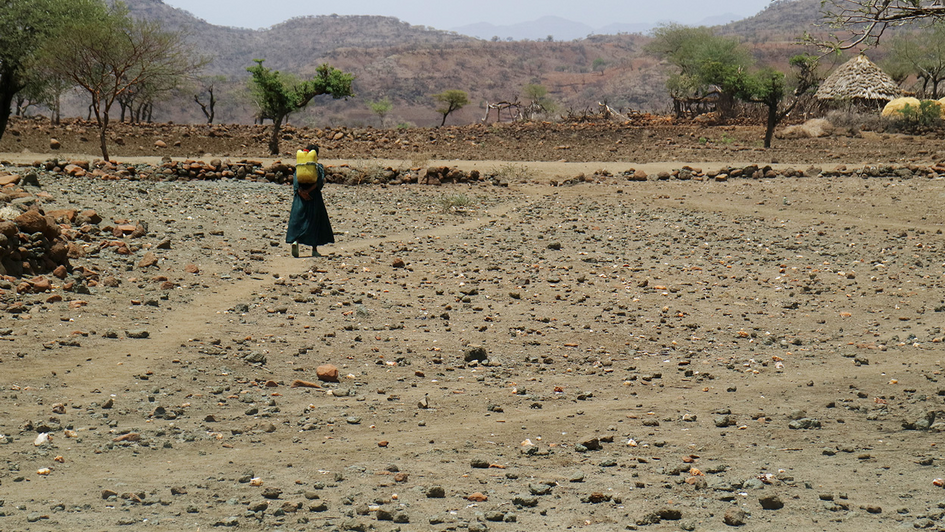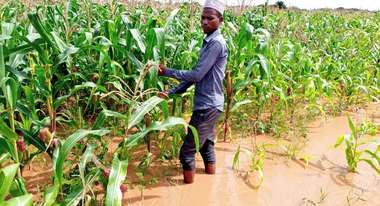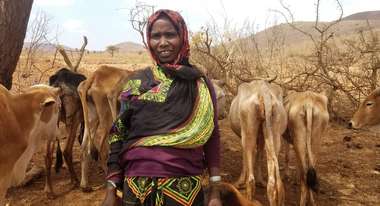Coronavirus, Locusts, Droughts, and Violent Conflict
Welthungerhilfe Warns of Hunger Crisis in East Africa and Allocates EUR 500,000 for Immediate Emergency Aid

Bonn/Berlin, 2022-01-20. Welthungerhilfe warns of a sharp rise in hunger in East Africa. According to the latest UN projections, more than 25 million people in Kenya, Somalia, and Ethiopia could face increased hunger by the middle of the year. In Kenya alone, 650,000 children are malnourished and around 4 million people will be forced to depend on humanitarian aid in the coming months. The causes of the impending hunger crisis are manifold. Climate change has resulted in three consecutive years with little to no rain, leaving people with meagre harvests and insufficient feed for their animals. At the same time, food prices are skyrocketing in many countries. A plague of locusts had already destroyed crops and grasslands in many places in the region in 2020. With the coronavirus crisis having exhausted their financial and material resources, many families now lack the means to weather the approaching storm.
People are in danger of starvation
Pastoralists are particularly affected in all countries. In Kenya, for example, around 1.4 million animals have already perished. “The families are stuck in a vicious cycle because prices for food staples are rising, while at the same time the pastoralists are hardly getting any money on the market for the weakened and emaciated animals. If the urgently needed rain fails to fall in January and February, the weakened livestock could die, placing human lives in jeopardy as well. Impoverished families are struggling with numerous crises at once without the resources to confront yet another dry spell. The coronavirus pandemic, periods of drought, and locust plagues together with the climate crisis have led to major hikes in food prices and to a hopeless situation in the remote regions. Violent conflicts over the limited pastures and water sources are becoming more frequent. Without rapid aid, people are in danger of starving,” says Kelvin Shingles, Welthungerhilfe’s country director in Kenya, describing the dramatic situation.
Combined with rising food prices and falling livestock prices, the prolonged drought is having a devastating effect in other countries as well, for example in Ethiopia and Somalia. Circumstances in these two countries are growing even more dire as violent conflicts often make it difficult to reach the people in need. Welthungerhilfe will support the affected families by distributing feed and cash and by restoring water sources.
Interviewpartner: Our country director, Kelvin Shingles, is available for interview (in English).
Welthungerhilfe is one of the largest private aid organisations in Germany; politically independent and non-denominational. It is fighting for “Zero Hunger by 2030”. Since it was founded in 1962, more than 10,369 overseas projects in 70 countries have been supported with 4.2 billion euros. Welthungerhilfe works on the principle of empowering people to help themselves: from fast disaster relief to reconstruction and long-term development cooperation projects with national and international partner organisations.







